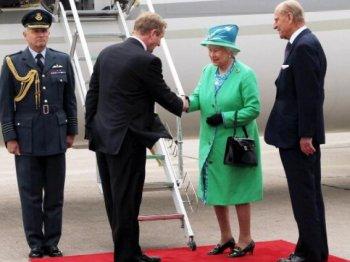Ofsted has grown too big and should be split in two to improve efficiency said MPs in a report published on Sunday, April 17th.
The report by the Education Select Committee also claimed that too few inspectors had experience in the types of schools they inspect, which undermined the organisation’s credibility.
MPs want to split Ofsted into two new organisations: the Inspectorate for Education and the Inspectorate for Children’s Care.
“We need a radical shift in how inspection operates in this country, with a more proportionate, specialist and focused approach,” said Graham Stuart MP, chair of the Committee, in a statement.
Ofsted’s remit was broadened in 2007 to include childcare. In addition to inspecting schools and colleges, Ofsted inspects council children’s services, child protection agencies, and CAFCASS, the Children and Family Court Advisory Support Service. In 2008, Ofsted was criticised for giving a favourable assessment of Haringey Council three months after its failings led to the death of “Baby P”.
Anthony Douglas of CAFCASS told the Committee that “the impact of inspection ... is profound on social workers. It generally contributes to a low-level anxiety, which, when you are doing very anxious work anyway, is a factor that we need to be much more aware of. If we are not really careful, we will drive people out of this work.”
The National Union of Teachers (NUT) welcomed the report. “While the NUT would have preferred for Ofsted to be abolished altogether, it is pleasing to see that the Select Committee has taken on board many of the NUT’s suggestions, in particular the conclusion that the longer-term aim should be to move to a system of self-improvement by schools, where the Education Inspectorate’s role would be much reduced,” said Christine Blower, general secretary of the NUT, in a press release.
Ofsted’s Chief Inspector Christine Gilber responded to the report in a statement. “Any proposal for further reorganisation needs to be very carefully considered and is ultimately a matter for the government,” she said.
The chair of Ofsted, Baroness Sally Morgan, added that “the Ofsted Board takes this report very seriously. We acknowledge, for example, the need for Ofsted to communicate more effectively about its work and to make its reports and information more accessible.”
The report highlighted the effects of stress associated with Ofsted inspections. Expert witnesses warned it was making teachers fall ill and making social workers quit their jobs.
Professor Nick Foskett, an expert in education at Keele University, told the Committee, “I am certainly aware of quite a number of people within ITE [initial teacher education] who have experienced quite severe personal health issues as a result of their experiences of Ofsted inspection.”
Christine Blower of the NUT said that reducing the Inspectorate’s role “would go some way to alleviating the stress and anxiety that the Education Committee recognised is being generated by Ofsted. It is entirely unacceptable that heads and teachers are too often driven to despair by an inspection system that many feel is there to catch them out, rather than praise them for what they are doing well.”The Committee said that unannounced inspections were the best. Currently, schools receive between zero and two working days’ notice. MPs welcomed a February announcement by Ofsted that all children’s homes’ inspections will be unannounced.
MPs favoured the abolition of inspections for outstanding schools. “We feel that schools should be encouraged to achieve higher levels of performance and then depend on self-evaluation and partnership with other schools as the key drivers to maintain and further improve performance,” stated the report.
Speaking about inspectors, the report said that “too few of these have recent and relevant experience of the types of settings they inspect, which diminishes the organisation’s credibility.
“Our report recommends that more is done to ensure that inspectors can develop their skills and experience at the front line, but also that more practitioners are seconded into Ofsted, perhaps with such secondments built into senior local authority and school leaders’ job descriptions.”
In the report’s summary, MPs highlighted the need to clarify what Ofsted was for: “From inspectors, practitioners and parents, there is clear confusion as to whether the existing Ofsted is a regulatory and inspection body, or an improvement agency.”


